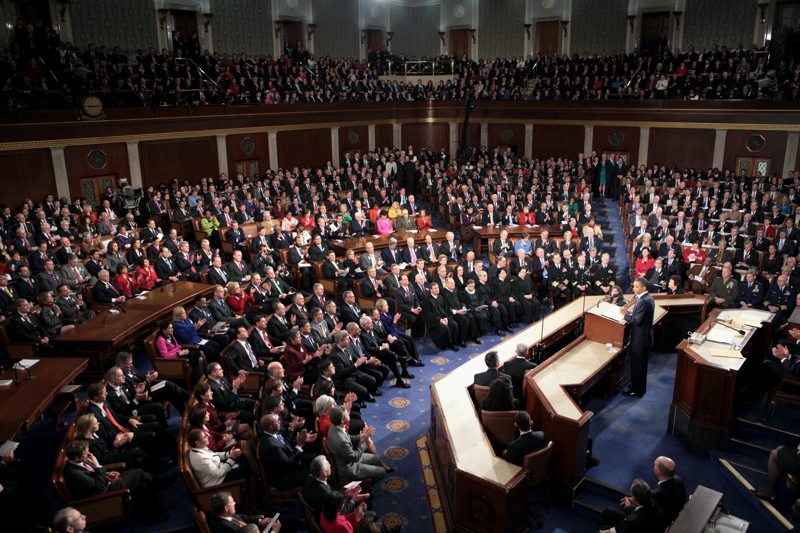Stalemate
Because of the way the legislative system is set up with a bicameral legislature and and separation of power, gridlock is inevitable and has existed from the beginning. Differing policy views, even within the same party, contribute to gridlock and result in delays and conflict when it comes to policy making. Gridlock is viewed differently depending on the person. Despite the way that it frustrates many Americans, Jefferson thought that a small amount of delay was helpful. Gridlock can be a tool that is used by legislators to strategically pass or stall a bill. Ultimately, gridlock is the result of the way the legislature is set up, as well as the differing agendas among the elected officials in the legislative branch.
The Imperial Presidency
A large amount of presidents have attempted broaden the President’s powers outside of those listed in The Constitution. Many have compared this extension of power to that of a king’s, hence the title “Imperial Presidency.” The main area that this shift of power can be seen in is the President’s wartime powers or powers in times of crisis. The justification used is that the president needs the ability to act quickly, and the results are things like FDR’s New Deal or The Cuban Missile Crisis under Kennedy. An example of a president who took his power too far and received backlash is Nixon during the Watergate scandal. As presidents continue to create their own power, corruption increases and they support the title of “Imperial” that Schlesinger has given them.
Pursuit of Justice
The President is explicitly given the power to nominate Supreme Court Justices, and the Senate’s job is to confirm the nomination. These are both significant powers and they require that the President the Senate can agree and work together. The President usually nominates someone with similar views and party affiliations, as they are supposed to be an extension of himself in the Supreme Court. The President also, however, has to consider party politics when making a supreme court nomination. Finding a candidate that fits all of the criteria is a difficult job, and there have been at least ten different changes in the selection process since the new deal that have made the process more complicated. The Justice Department has also taken a more significant role in the government as time has passed, resulting in increasing importance of Supreme Court nominations. The number of federal courts has grown, and as a result so has the number of appointments the president is required to make. The White House staff grew as well, resulting in more influences and factors for the president to consider when making decisions. Presidents also rely more heavily on their counsel to help them make decisions. Because a divided party system is now commonplace, a moderate candidate for the Court must be selected to make it through if the president and the Senate have conflicting parties. Nominations have also become much more public, and have to deal with more scrutiny from the media and the public. The American Bar Association has also received the power to rate candidates and have a say in who is chosen. Interest groups conduct research and attempt to influence the appointment through their own means. Technology has also increased and allows more information to be gathered and seen about the candidates when making decisions. The Supreme Court has grown in influence and power, and with it the nomination process has become more important and complicated.
[Put this on my lowest quiz, please :)]
[Put this on my lowest quiz, please :)]






